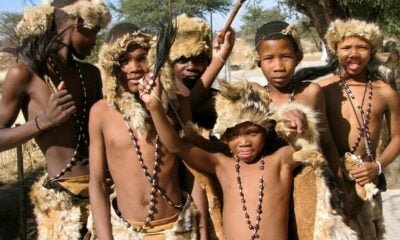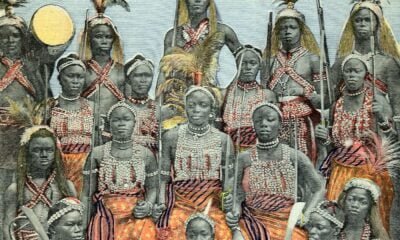People & Culture
The People of Sefwi & Their Culture
Published
3 years agoon
By
M N Ridwan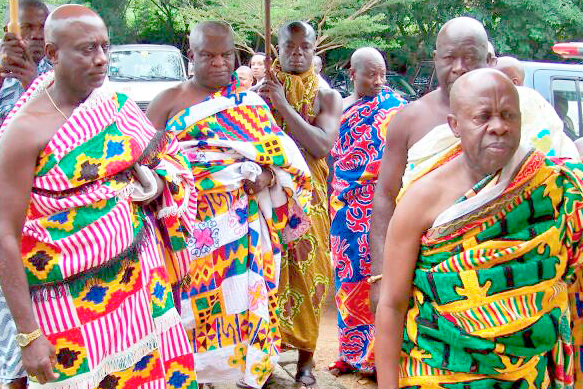
Sefwi is a region in Ghana located in the Western North region.
It is known for its rich culture and heritage that has been passed down from generation to generation.
Sefwi culture is a combination of various traditional practices, beliefs, customs, and festivals that make the region unique.
The people of Sefwi are known for their hospitality, warmth, and love for their culture, and this has attracted many tourists to the region.
One of the most prominent aspects of Sefwi culture is its music and dance.
The Sefwi people have a rich musical tradition that is characterized by traditional instruments like the xylophone, balafon, and drums.
Their music is used to celebrate various festivals and special occasions like weddings, funerals, and religious celebrations.
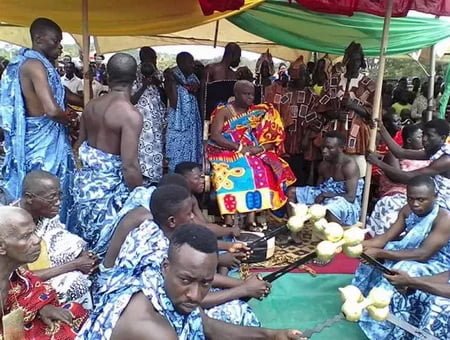
READ ALSO: 8 Interesting Facts About Africa No One Told You About
The Sefwi people are known for their energetic and rhythmic dance moves that are performed during these musical celebrations.
These dances are performed in a group and are an integral part of the Sefwi culture.
Another important aspect of Sefwi culture is their traditional festivals. The Sefwi people celebrate several festivals throughout the year, and each festival has its unique customs and traditions.
Some of the popular festivals in Sefwi include the Akwasidae Festival, the Ahobaa Festival, and the Tano Festival. The Akwasidae Festival is a celebration of the Ashanti Kingdom and is held on Sundays.
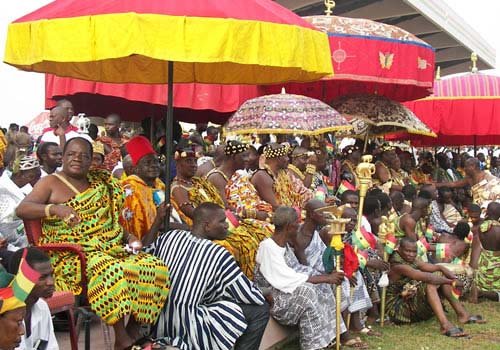
The festival is marked by a grand procession led by the Ashanti king and other important dignitaries. The Ahobaa Festival is celebrated in honor of the gods and is marked by traditional dances, music, and rituals.
The Tano Festival is held to mark the end of the harvest season and is a celebration of the good crops and the blessings of the gods.
The Sefwi people are also known for their traditional crafts and art. The region is famous for its woodcarvings, pottery, weaving, and beadwork.
These crafts are produced using traditional techniques and are an important part of the Sefwi culture.
The woodcarvings are used to decorate homes, public buildings, and religious sites, while the pottery is used for practical purposes like storing food and water.
The weaving and beadwork are used to create traditional clothing and accessories.
The Sefwi people are also known for their religious beliefs and practices. The majority of the population is Christian, but there are also traditional religious practices that are still observed by some communities.

These traditional beliefs include the worship of ancestors, gods, and spirits. The Sefwi people believe that the spirits of their ancestors protect and guide them and that the gods provide them with good health, prosperity, and peace. The traditional religious practices are marked by rituals, dances, and offerings to the gods.
In conclusion, the Sefwi culture is a rich and diverse blend of traditional practices, beliefs, and customs. From the music and dance to the festivals, crafts, and religious beliefs, the Sefwi culture is a testament to the resilience and strength of the people of the region.
This culture is an important part of the heritage of the Sefwi people and is a source of pride and identity.
The preservation and promotion of the Sefwi culture is crucial to ensure that future generations can continue to enjoy and celebrate their rich cultural heritage.

